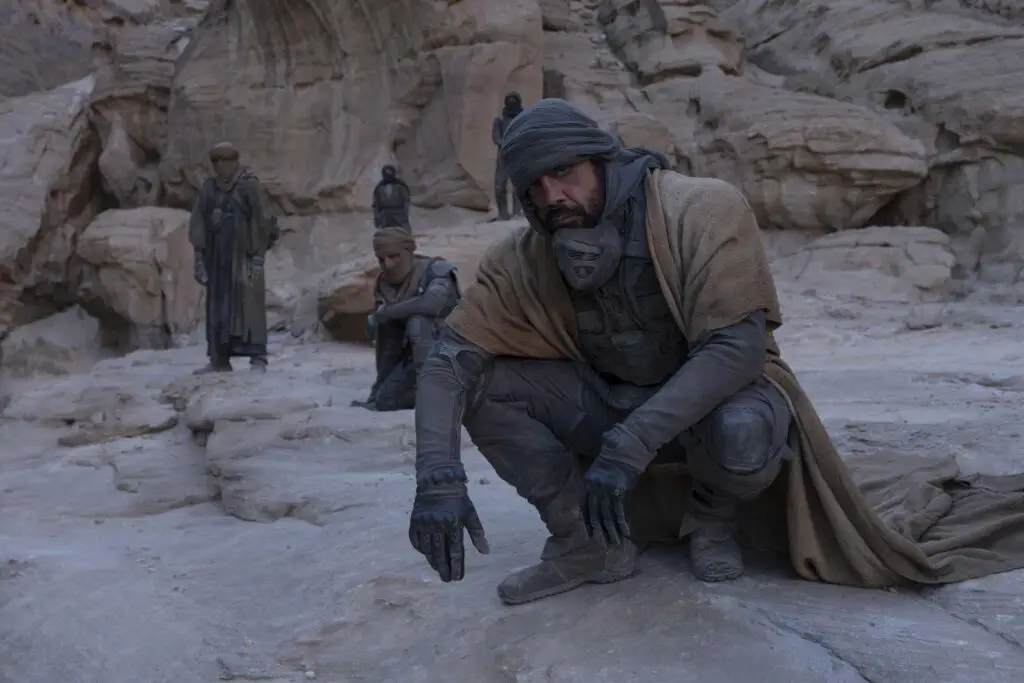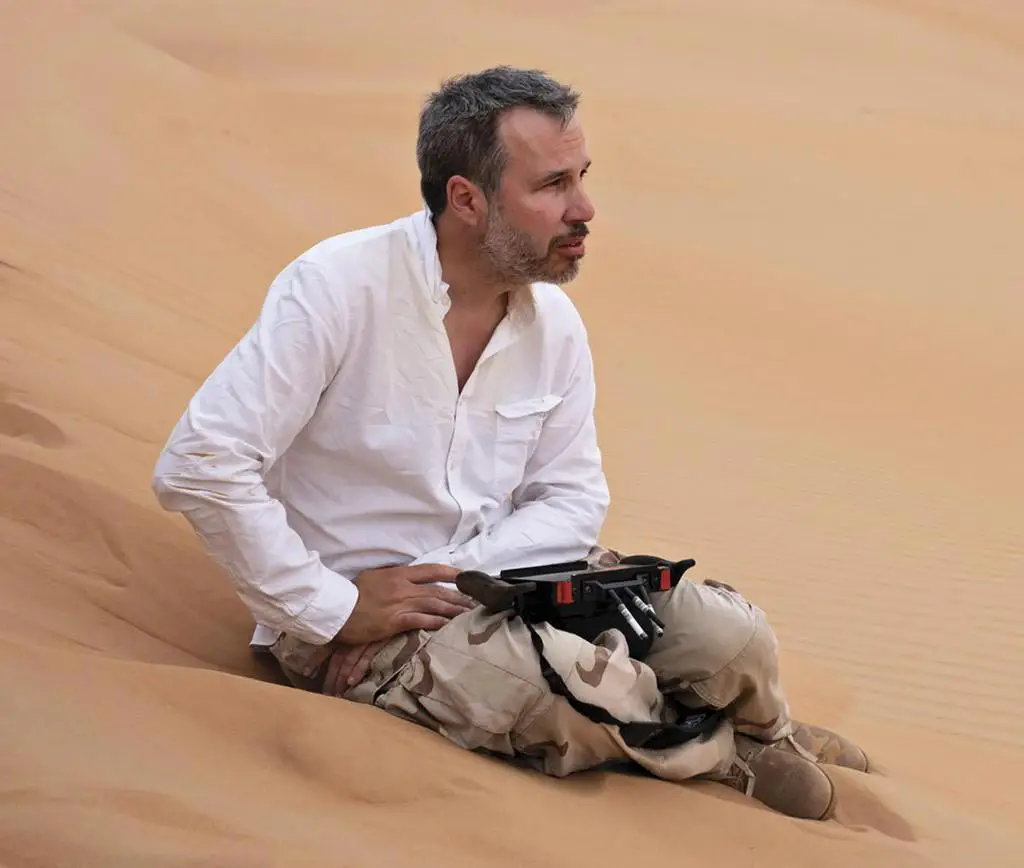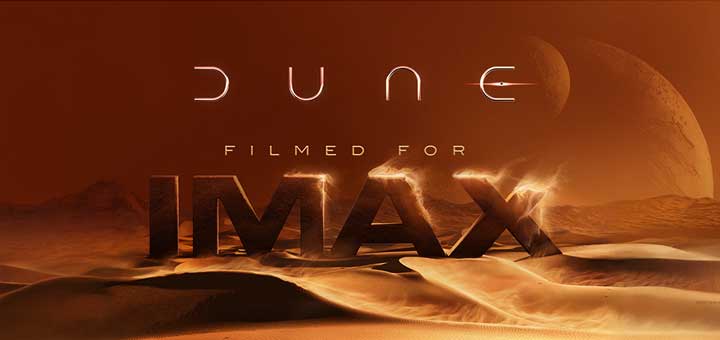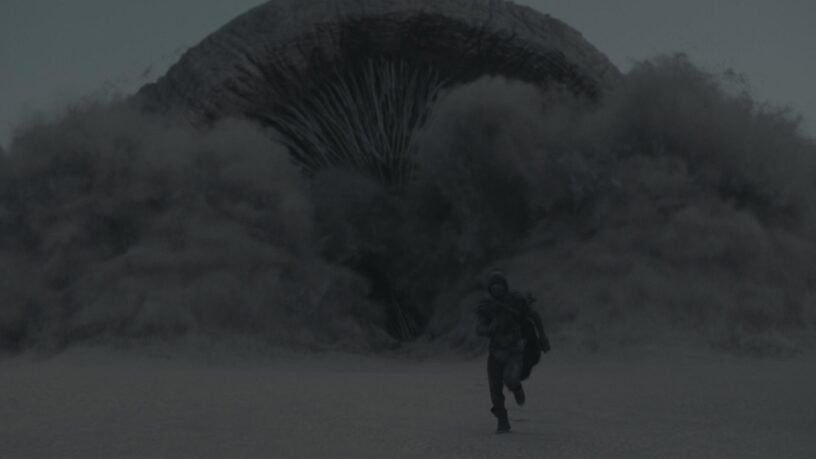As anticipation grows, less than a week away from the 94th Oscars—where Dune: Part One has been nominated in 10 Academy Awards categories—Denis Villeneuve is continuing to make rounds in the media and teasing us with all of his Dune: Part Two movie updates. Recent highlights include in-depth interviews with Collider and Variety, as the director shares further insights regarding that second movie, which is currently set to be released in theaters, including IMAX of course, in October of 2023.
Oscar Awards Perspectives
Although the Dune movie’s impressive list of nominations and wins throughout film awards season promises success at the upcoming Oscars, many have questioned why Denis Villeneuve has been left off of the nominations list for best director. While this remains a shock to others, the director himself has an altogether more meaningful way of thought when it comes to awards.
It’s better to be in that position than the opposite, I prefer people say “you should have been there” instead of “what the hell are you doing there?” I’m not making movies to get awards recognition. If you do that, you’re not walking the right path.
I make cinema because I love the art form of cinema. I love making movies. If you had told me a year ago that we would get 10 nominations, including best picture, I would have laughed and said, “You are out of your mind.”
Denis Villeneuve, speaking to Variety
Villeneuve not only shows that he can create an on-screen masterpiece, but now we know without a doubt where his heart and mind reside within the film industry. It would seem that no matter what movie he makes, it is foremost because for his love of film-making and the art form of cinema. When questioned about the Academy Awards not airing a number of major crafts categories, including documentary short, film editing, makeup and hairstyling, original score, production design, animated short, live-action short, and sound—several where Dune has received nominations—Villeneuve had the following to say:
When people talk abut “technical” awards, they are not “technical,” they are artistic. Sound design is an art form. Editing is the most important art of cinema. It’s all about art. So the beauty of the Academy Awards is to put the spotlight on the people who work in the shadows. I thought it was a sad decision. I think they threw the baby [out] with the bathwater.
I understand that they are under tremendous pressure. I understand that the Oscars are, in a way, victims of the fact that broadcast TV is slowly fading away. But you cannot [move] away from the nature of the Academy Awards to get more people to watch. It must be a show where every single art form is celebrated, and I think that is a regrettable decision.
If there is one thing that is for certain, it is that Villeneuve cares deeply about every aspect of art that goes into creating a movie. Though the director was not nominated in his respective category, he has not worried about his personal recognition for Dune: Part One—rather he has his eyes set on its continuation.
Another Journey into the Desert
While Denis Villeneuve was attending the PGA Awards show last week, he was able to speak a little on what Dune: Part Two will be focusing on.
It’s going to be another beautiful journey in the desert again… It’s the journey where Paul Atreides and his mother, Lady Jessica, make contact with the Fremen culture and meet with the Fremen. It’s Paul’s journey against the enemy.
Denis Villeneuve, speaking to Deadline

When we last see Paul Atreides (Timothée Chalamet) and Lady Jessica (Rebecca Ferguson) they were with Stilgar (Javier Bardem) and Chani (Zendaya) along with other Fremen, heading out into the desert. With above statement, one could speculate that the second movie could pick up right where the first part ended. Villeneuve also gives a brief insight into the world of Arrakis for Part Two.
It’s a movie that will be more cinematic.
While Greig Fraser has been nominated for Best Cinematography at the upcoming Oscars, it begs the question: How can Part Two be even more cinematic than its predecessor? A question that will have to wait to be answered. Villeneuve has also been questioned regarding recent reports on Florence Pugh, in talks to play Princess Irulan Corrino, to which he simply stated:
There’s been rumors.
Things are not solidified…[but I’m a] big fan of Florence.
While his lips are sealed on new casting, Villeneuve has been open when discussing the future of Zendaya’s character, Chani. Here again, he emphasized there’s a major role in store for Zendaya, compared to her minor role in the first movie.
For Zendaya, I will say Part One was a promise. I know that we saw a glimpse of her in Part One, but in Part Two, she’ll have a prominent part. We will follow Timothée Chalamet and Zendaya on their adventures in the desert. That’s the thing that excited me most about going back to Arrakis… to spend time with those characters again.
Along with anticipation of future casting announcements, we can look forward to information on the script and how Villeneuve approaches the task of storyboarding Dune: Part Two.
Denis Villeneuve Says Script is Practically Done
Villeneuve’s comments should alleviate any worries of fans that are keeping up and eagerly awaiting further Dune announcements. When asked about the screenplay for Part Two, the director had this to say.
The screenplay is finished mostly, but it’s always a work in progress. It’ll be a work in progress until final cut, but I will say it’s solidified. I have a script in my hands. We are in prep right now.
My crew, we are in full prep for the movie. And with the awards seasons, it’s tricky. My brain is like, it’s like two parts of my brain that don’t connect together, and it’s not easy to and be in prep. And I’m not complaining.
Denis Villeneuve, speaking to Collider
Having a script is one of the most essential components for a film, even more so for the actors that will be portraying their characters on the big screen. For Villeneuve and his crew, one of the most crucial aspects of a creating a movie is the storyboarding process. Bringing to life the writing that is on paper and translating those ideas into the best possible visual representation… it’s one of the great challenges of film-making.

The thing is that in a movie like Dune it depends on the scenes. Most of the movie was storyboarded to give indications for schedule and for the crew to know where we were going… It’s a new way of writing the movie again. And once the movie’s storyboarded, I go back to the screenplay, and I rewrite the screenplay according to the storyboards.
It’s a way to make the writing move forward… For me storyboarding is more about writing the movie than shooting it. It’s a way to find new ideas, to know the visual language of the movie’s more defined, and I find honestly tons of ideas or new ideas as I’m storyboarding.
While we wait in excitement for awards season to wrap up, it is safe to say that work on Dune: Part Two appears to be on schedule. Denis Villeneuve has the proclivity for the exceptional and for the extraordinary when it comes to film-making. Knowing how well the first part came together, it should come as no surprise that the script and the storyboarding for the second movie will continually evolve to fit the best vision that Villeneuve has for it.
Expectations for IMAX

To truly transport moviegoers to the universe of Dune and its many unique environments—from Arrakis to Caladan to Giedi Prime, and hopefully Kaitain—it is imperative to shoot in a way that will have an audience be immersed in every way possible. Dune: Part One saw immense success in IMAX and, as confirmed by Villeneuve, the premium format will be used again to showcase the immensely beautiful worlds in the second movie.
Definitely. Greig Fraser and I, we fell in love with this format, and definitely there will be even more IMAX footage in this movie. Definitely.
Villeneuve: The Breadmaker of Film
While many noteworthy movies, both recent and those of the past, have gone through post-release changes and the additions of deleted scenes, Villeneuve is a firm believer of the opposite. When asked if he’ll ever show deleted scenes in the future, he had this to say:
No, because when I cut something out of the film, and honestly, there are some scenes, one in particular that it still breaks my heart. There was a little moment with Stilgar in the desert that I’m still mourning, but when I tried to put it back in the film, it deflates the momentum. When a scene is on the cutting floor, it’s dead. I don’t like deleted scenes. I don’t believe in that. What you see on screen is the movie I wanted to make, and it’s more pure this way.
In this way, Villeneuve has become a very decisive filmmaker. He doesn’t create a film with hopes that additional scenes will be used in a Blu-ray release. Every element of the movie that we see, we are meant to see, and serves a purpose. Villeneuve worries more about the telling of the story and the momentum the story has than how much can we fit in a certain time slot. The director’s style of filming is one with intention and purpose.
The director emphasized that he wasn’t restricted to a maximum length for Dune: Part One and is fine with where it ended. Even from reading its screenplay, he felt it was a “movie that should last between 2:20 and 2:30.”
At the beginning my commitment was to make a movie that was around two hours and 30 minutes or a little bit under because my previous movie, which had been Blade Runner 2049 was close to three hours, and I reassured everybody, saying that I would. But I was feeling the true answer is that myself, I was feeling that it was a story that could hold two hours and 25 to 30 minutes, something like that. I committed to that, and it’s fine.
In another recent interview with Jimmy Fallon, Villeneuve was asked what job he would likely do, if he had never become a filmmaker. His response is that he is fascinated with the appeal of people needing bread.
I love the concept of “People need bread. You make Bread. People buy bread.” There is something very—I love this idea and I’m serious about it.
In a way, this makes complete sense as to how Villeneuve creates film. Just as a breadmaker were to create and sell a need people have, the director uses this simplistic method in his style of filming: People need a movie, Villeneuve creates the movie, and people love that movie. Everything Villeneuve does when creating film has authenticity and purpose behind it. He gives the audience something incredible to view without a need for extended releases or deleted scenes. He is giving us, the metaphorical, bread that we need.
The following clip contains that full segment with Denis Villeneuve on The Tonight Show (five minutes):
The Beautiful Challenge
While completing the first movie was a challenge by itself, Dune: Part Two will be equally challenging. From filming on location in 100+ degree weather to creating a film that will equate itself to its predecessor.
I would say it’s similar pressure. The first one, it was more to make sure that we will land in the world and that the movie will be accepted. Now it’s to make sure that we can close that first book, so it’s like there’s some premises that are in the first movie that I need to ignore. So yeah, I think I would say there’s more pressure with the second one in some ways.
While filming, storyboarding, and editing is a challenging process, Villeneuve teases us regarding one specific scene that will be extremely complex:
It involves sandworms that’s going to be one of the beautiful challenges of my life. And I know if I do it right, that will be the scene.
This beautiful challenge, that could encapsulate and defines Dune: Part Two, deals with one of the most technically difficult aspects of Part One; the sandworms. For a more in-depth listen, check out Variety’s full podcast interview with Denis Villeneuve below. The director speaks more about both Dune movies, the Oscars, and his other projects (59 minutes).



